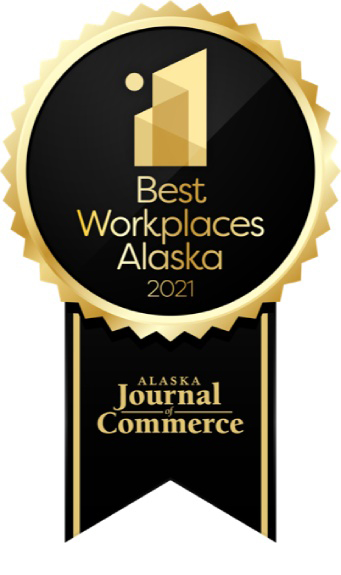Manufacturers Need to “Millennial Up!”
June 6, 2018
We have all heard the term, “Millennial.” Many of us think of a twenty-something, video gaming, non-starter who is still living in mom and dad’s basement. As a Generation X’er, I have often wondered, are we so different? Why was my generation not assigned a similar stigma? I have plenty of friends who are slackers, many of whom turned their love of video games and computers into a career. Some have flourished, and others floundered. What drives this misconception, and how can we better understand what millennials require to feel fulfilled?
Millennials currently make up more than one-third of the workforce, making them the largest generation currently in the U.S. labor force.
In our most recent Manufacturing HR Roundtable discussion, Jenifer Lambert from Terra Staffing helped us understand what a millennial is defined as, and provided her thoughts on this extremely large population with whom she works regularly. There are many different thoughts on the age range of this group, but the consensus we reached is these individuals are aged 21-35. Clearly, they are not the kids commonly associated with the term. Millennials currently make up more than one-third of the workforce, making them the largest generation currently in the U.S. labor force.
As I talk to manufacturing clients, their number one concern is their aging workforce. According to a study by SHRM, one out of four current manufacturing employees is older than 55. The common question is, “How can I find competent workers to keep my business running?” It makes sense to simply replace a baby boomer with their children, the millennials, but it isn’t that easy.
Manufacturers are facing a hard truth. Manufacturing is perceived as mundane and rudimentary by those not in the industry. Just as society puts a label on millennials, it has done so to manufacturing. “These are line workers who stand all day in a factory and attach a single part to a widget all day long…” Currently, one-third of Americans would not encourage their children to pursue careers in manufacturing. However, have they considered parts of the industry dealing with advanced robotics? Or being able to use tools like lasers and waterjets? Huge warehouses whose floors are like a gigantic air hockey table that allows you to move extremely heavy and large items relatively easily? That is what manufacturing is today – an industry that is transformative and has maximized efficiency with cutting edge tools and technology. In fact, the number of Americans who would not direct their children towards manufacturing drops by half when those people are familiar with the industry. In other words, it’s perfectly suited for millennials.
…the millennial workforce needs a greater purpose. Not all manufacturing is hyper technical, but if an organization provides the “why” behind the product, millennials will find a greater interest and purpose in the business.
Jenifer pointed out in our discussion that it goes a step further. The generational gap proves to add some challenges. Most millennials do not remember a time without easy access to technology and, as a result, they are accustomed to immediate information and feedback at their fingertips. They thrive on this real time information; they prefer constant feedback to let them know they are doing well. A recent survey of millennials reports that 72 percent found their jobs fulfilling when provided with consistent and accurate feedback on their performance. As a Generation X’er, I want somebody to tell me what the task is and how the end result should look, feel, etc. Then, I want to be left alone to complete the task. A millennial is much different. They want to work collaboratively in a team of peers that will push and challenge them, while supporting and encouraging. To make sure that they are on task according to the desired outcome, millennials appreciate multiple touch points during the project. They want to innovate and think outside the box.
Finally, the millennial workforce needs a greater purpose. Not all manufacturing is hyper technical, but if an organization provides the “why” behind the product, millennials will find a greater interest and purpose in the business. What does your product do? Do you have stories that highlight the product’s value? For instance, if you make a flashlight that has an S.O.S. feature, is there a story where your product helped save somebody’s life? If you manufacture nautical engines for freighters, then find stories that show how your product helps distribute food, supplies, and more to underserved or underdeveloped countries. The work millennials want to do should be meaningful.
With a better understanding of what drives millennials, you will have a better chance at attracting qualified candidates to fill those job openings. An experienced employee benefits broker can help review your hiring practices and optimize them to attract more millennials. Tom McLaughlin from CAMPS continually states that there are close to 75,000 Washington manufacturing jobs that will be available over the next five years from baby boomers leaving the workspace. It is time for Washington manufacturers to millennial up.
References and Resources:
- http://www.pewresearch.org/fact-tank/2018/04/11/millennials-largest-generation-us-labor-force/
- https://www.shrm.org/hr-today/trends-and-forecasting/research-and-surveys/Documents/Preparing%20for%20an%20Aging%20Workforce%20-%20Manufacturing%20Industry%20Toolkit.pdf
- https://www2.deloitte.com/us/en/pages/manufacturing/articles/public-perception-of-the-manufacturing-industry.html
- https://clutch.co/hr/resources/engage-millennial-employees-feedback-evaluation
The views and opinions expressed within are those of the author(s) and do not necessarily reflect the official policy or position of Parker, Smith & Feek. While every effort has been taken in compiling this information to ensure that its contents are totally accurate, neither the publisher nor the author can accept liability for any inaccuracies or changed circumstances of any information herein or for the consequences of any reliance placed upon it.



